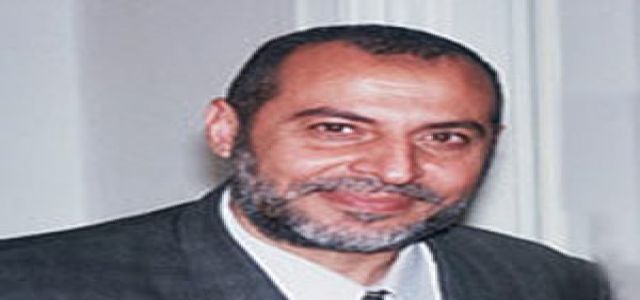Mohsen Radi (member of the parliamentary bloc of the Muslim Brotherhood and a member of the Committee on Information and Culture in PA) considered Egypt"s decline in the world classification of press freedom as an expected and a normal thing, especially under those unlimited restrictions imposed on the press.
Radi stated to ikhwanweb: "I am not surprised by that rank of Egypt, especially under a ruling regime which gives the green light to its security agencies to arrest journalists and abuse them ... In a country where there is the so-called" Supreme Council of Press "which is the ally of the regime to suppress the freedoms of journalists and to prevent the publication of newspapers that do not go along with want the regime wants."
Radi added: "The ruling regime in Egypt has to know that its repressive policies against press and journalists, affect Egypt"s image and position in the world," pointing out that most of the civilized world countries witness in this period many of legislations aiming at giving much more space for freedoms of press and media.
Egypt had ranked low in the "World Classification of Press Freedom" issued by the most famous international organization concerned with press freedoms in the world (RSF), as it ranked No.156.
The organization referred to the causes of that decline, confirming that one of the causes is the imprisonment sentences against a number of Egyptian journalists, as well as what it called the repression on the Internet, describing the events that followed the strike call of April 6, and the arrest of the electronic activist (Israa Abdul Fattah), which the organization report dealt with, by saying :" The Demonstrations launched on the Internet resulted in inflaming the capital and worrying the government which considered every browser as being a potential danger threatens the nation. Thus the Egyptian government increases (filtering) year after year, while repressive countries do not hesitate to imprison bloggers. "
(RSF) Organization, which locates in Paris, the French capital, revealed in its annual report entitled (In the world after Sept. 11, peace is the only protector of freedoms), that this classification includes (the period from the first of September 2007, to the first of September 2008).
The report stated: "If China is still on the top among (the monopolists of black network), by resorting to advanced technologies watching Visitors, then Syria has become a regional star in the electronic repression, as surveillance has become so intensive to the extend that if there is any criticism, the detention process is only a matter of time."
The ranks of Arab countries are as follows: Kuwait was on the top of the classification, as it ranked (No.61), on the top of all Arab and Middle East countries, while Lebanon ranked (No. 66), as it witnessed a progress in the freedom of expression, justifying that by putting an end to attacks against prominent journalists in the recent years.
While U.A.E ranked (No.69), Qatar (No.76), Bahrain (No.96), Turkey (No.103), and Mauritania (No.105) which was on the top of the classification among Arab countries in 2007 and that was as a result of the coup that halted democracy.
Despite the fact that Iraq ranked (No.158) and still at the bottom of the list, it made a progress in the classification of 2008 among Arab countries such as Syria (159), Libya (160), Saudi Arabia (161), and the Palestinian territories (163), while Iran came at the bottom of the list of Press freedoms in the Middle East, as it ranked (No.166), while Turkmenistan (171), North Korea (172), and Eritrea (173) were at the bottom of the list.







